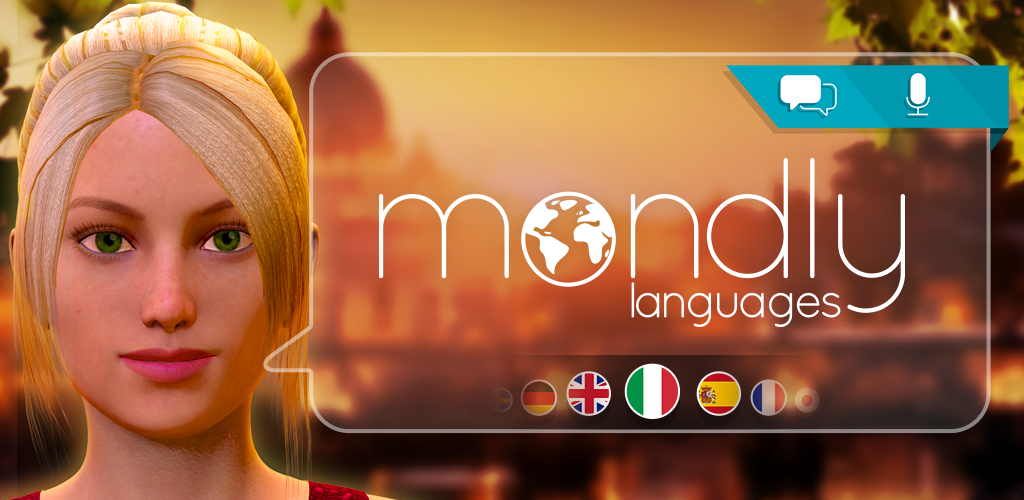
21St Century Communication: Revolutionizing the Way We Talk

21St Century Communication: Revolutionizing the Way We Talk
Language defines us. Being able to speak foreign languages is the first step to upgrading your brain, adding social skills and broadening your horizons. Exchanging information with a stranger in a different language can be a very fulfilling experience. It’s as if you would get to step into a whole different world.
In terms of numbers, learning foreign languages has become a widespread activity for the majority of people, with English holding the number one spot in foreign languages learned in the EU followed by French and German . This is a trend that is likely to continue for years to come. It is evolving, changing, faster than we as humans are. Whether it’s self-study books, regular classes or mobile apps, learning a new language is a trend without an expiration date. But what does the future hold for language learning?
Learning languages in the past
The traditional ways of learning are those where one learns from someone else. The most important factor was the human interaction, but as you will see further, the substitutes of this method are taking things to a whole new level.
We also used to learn from books. Writing has also been one of our defining activities as humans. They were widespread, translated, re-translated and brought into the classroom to help the students. But what did they lack? Well, first we could mention interactivity. You had no feedback from books, nor do you have it now. The downside? Books are boring, and they don’t offer any feedback whatsoever.
In the past,learning a foreign language was seen as something high-level. Knowing multiple foreign languages was an advantage, as it proved you were highly educated and well-traveled. This sort of people would show off their abilities at social gatherings and amaze everybody in the audience. If apart from English, you spoke French, German and Italian, you were the star of any type of group meeting.

Learning a foreign language with the help of technology
Times have changed. Learning has changed. Nowadays, with the boom of technology, methods of learning a language have become more diverse. While the classic teacher-to-student approach is still the norm, other methods have made their way into our world. Technological advancements are now filling the gaps in the regular type of learning.
We are now facing a transition phrase with new technologies making their way into our lives. Teachers now use devices to enhance our learning experience. From online teaching methods to videos and mobile apps; they all help the modern learner be engaged and fully attentive. As a result, we find it easier to learn a foreign language in the 21st century than ever before.
This exciting new modern era brings out the idea that one can learn on their own. So we turn to the internet. Learning languages online has become one of the most talked-about topics and also one of the most widespread activities in recent years. Learning online caught on and continues to catch on! Now there are apps, videos, free online lessons– at everybody’s fingertips. The only downside would be that you don’t have the human interaction, that connection when you learn face-to-face. The next best thing is Mondly’s Chatbot feature where you can have a conversation in a different language with a virtual character inside the iOS or Android apps.
But this is just the beginning because technology and all its advances are there to prepare you for such interactions. Technology will always empower you to learn faster than ever before and become a better version of yourself.
Language learning in the (near) future
It is difficult to predict the future; except maybe when it comes to language learning. Technology does not have a brake. A quick search online brings up more and more devices with innovative features for language learning. For example, there are mobile apps especially created to help kids learn languages on both iOS and Android .
Also, there are people developing devices that automatically translate a foreign language for you. But there’s still some way left to go until such technology hits the market. Either way, it’s one thing to know a language and another to have a device translate it for you.
In that respect, the most exciting tech in learning languages is VR (Virtual Reality). The first Virtual Reality app for language learning using speech recognition is Mondly. When you start learning, you engage in virtual conversations and actively participate in lessons, with characters that guide you through the learning process. Not only that, but you also receive feedback in terms of your progress, pronunciation, vocabulary suggestions. It is an unforgettable experience that is both fun, and accessible since you can easily do it from the comfort of your home.

The movie Matrix opened the gates to a world where you just plug your brain into a computer and immediately acquire a new language or skill. Elon Musk is one of the most-talked-about names in tech nowadays! What does he have in common with learning languages? Well, he’s developing devices that can be implanted into the human brain, and their end purpose would be to help humans “ merge with software and keep pace with advancements in artificial intelligence ”. This could open doors for developers to bring lessons straight into your brain! Take a second to let that sink in – at the click of a button, a language would be merged with your brain! (Matrix, anyone?)
10 best ways to learn a language
Learning a new language seems easier than ever, so, regardless of your age and occupation, it’s worth it to take some time and devotion. Here are some ways to learn a language on your own , at home, or with a group of friends:
1. Make time
Easier said than done in modern times, but making time for your passions can bring a series of benefits that will change your overall mood and wellbeing. A few sessions of learning a week will help you improve your skills, especially if you choose speaking and pronunciation exercises. The best way to learn a language at home is to sit in front of your computer or phone for at least half an hour each day and practice.
2. Trust repetition
It’s hard not to be an expert at something from the exact moment you start learning it, but repetition is the foundation of progress. To learn a new language by yourself, you have to repeat vocabulary and grammatical patterns until your brain becomes used to the new information. This is the best way to notice things, fix your mistakes and assimilate information.

Socializing is crucial.
One of the best ways to learn something new is to expose yourself through practice. When learning a new language, developing the speaking skills is crucial, so try to socialize with people who speak the language at a proficiency level.
4. Allow yourself to make mistakes
When children learn, everybody encourages them to make mistakes and find the right path. As adults, we start feeling embarrassed, we become frustrated and give up. Allow yourself to make mistakes, ask to be corrected, and accept that learning takes time.
5. Be consistent
Rome wasn’t built in a day, and just like that, you won’t be able to become an expert in just a few days. When asking yourself what’s the best way to learn a language, remember that it takes time and consistency is key. Practice every day, memorize the most important rules and exceptions, and enjoy the ride.
6. Notice specific patterns
When you learn on your own, you need to be aware of the way you do things, what you need to improve and how. Noticing patterns will help you remember grammar rules and also notice them when you do speaking and listening exercises.
7. Have fun
Learning needs to be fun and entertaining, otherwise you might lose interest in it. To avoid that, look at the process from a rather childish perspective and make all your lessons fun.
8. Always start with the basics
You might be interested in learning a new language , but before you start seriously studying it, learn the basics. From greetings, how to introduce yourself, fun words and expressions, these can give you a glimpse into what the language actually sounds like and how hard it will be to learn it.

Learn anytime, anywhere.
Start with Mondly and discover how you can learn a language fluently with little effort.
9. Choose books you already read
Is reading the best way to learn a language? It sure is one of them! Practice is essential and one of the best ways to do this is to choose books you already read, but go for those translated in the language you’re trying to learn. Make sure you also have a dictionary handy, to be able to look for new words easily.
10. Watch movies without subtitles
This must be the best way to learn for every cinephile out there. Watching movies without subtitles will help you get used to the conversations and pay attention to little details. Also, you can learn new vocabulary and help your brain recognize intonation and pronunciation patterns.
Start learning today and trust your efforts. Find the best program to learn a language and immerse yourself in this experience.
So what’s next?
There are more peoplelearning foreign languages nowadays than ever before. Our population numbers are increasing, and so are our demands for learning. Now you learn from the comfort of your home, at your own pace, with your own capabilities. People are getting more and more excited about mixing learning with comfort. And so we see a world where people with access to technological devices (maybe smaller, flatter and more affordable?) will no longer go to classes but have classes come to them in an electronic form. The future of learning languages is thus a bright, fast one. Let’s all hope we get to see this evolution!
The fact is that languages evolve together with technology. Regular classes and books are trying to keep up, but they are losing the race. We already have free lessons online, language applications, YouTube lessons, and so on. In the end, what makes the difference is quality and effectiveness. All you have to do is choose wisely!
In the 21st Century, you have all the tools and platforms needed to successfully learn a new language. Also, with more opportunities to travel and explore the world, you will be able to put your skills to good use and become a citizen of the world.
- Title: 21St Century Communication: Revolutionizing the Way We Talk
- Author: Christopher
- Created at : 2024-07-29 06:40:56
- Updated at : 2024-07-30 06:40:56
- Link: https://mondly-stories.techidaily.com/21st-century-communication-revolutionizing-the-way-we-talk/
- License: This work is licensed under CC BY-NC-SA 4.0.






